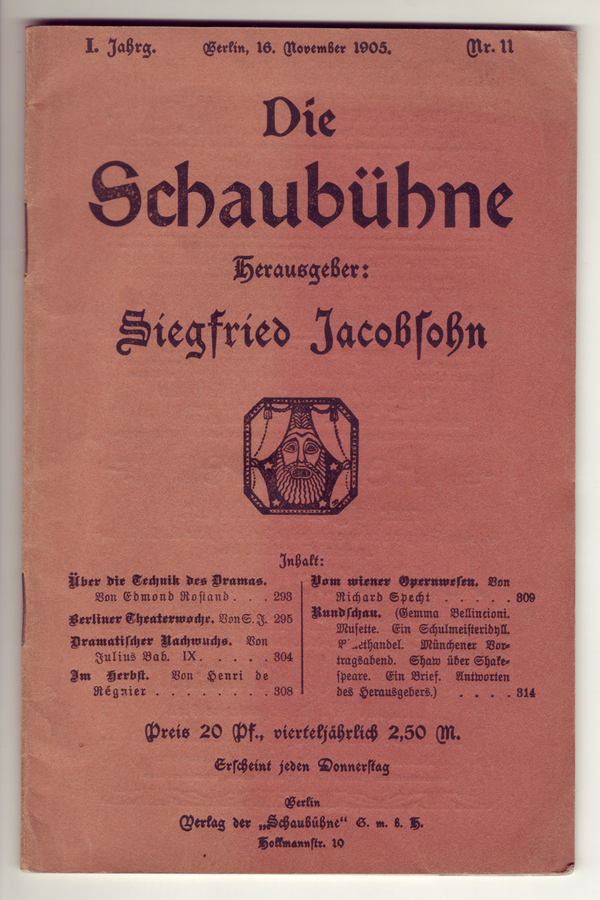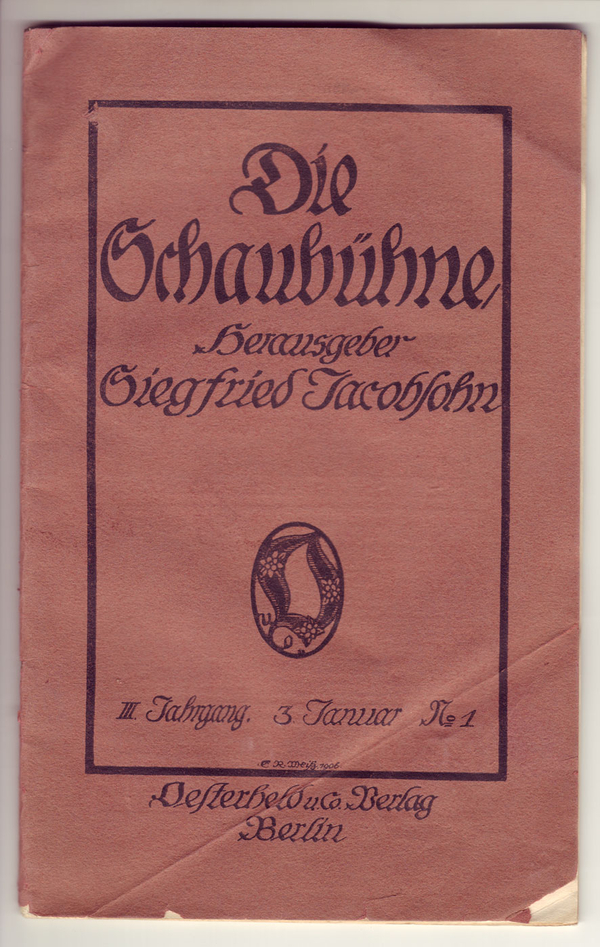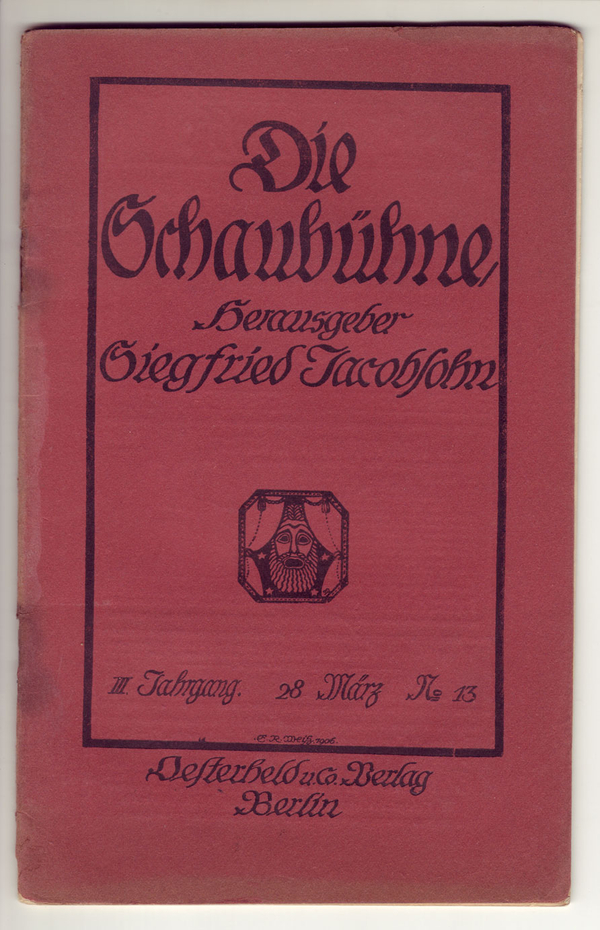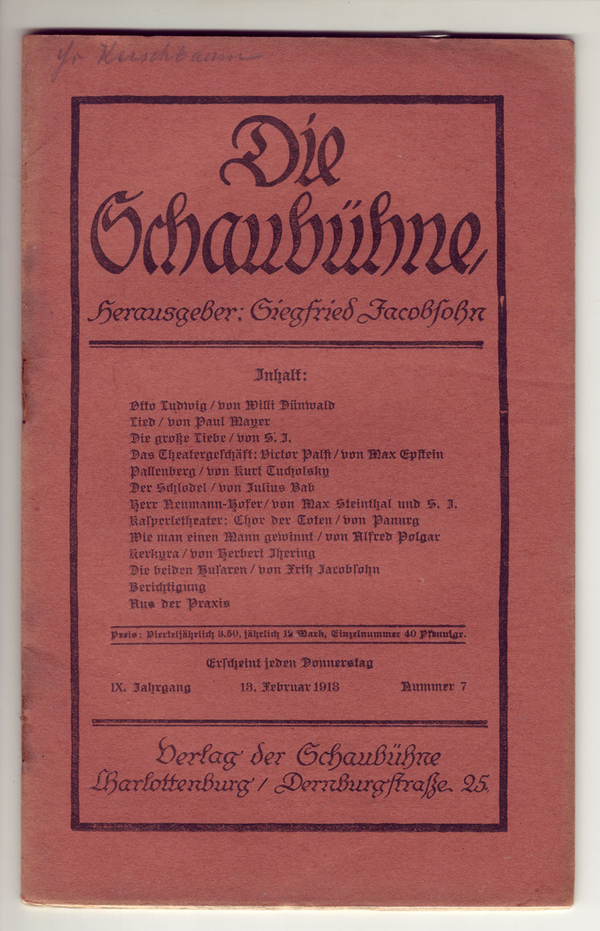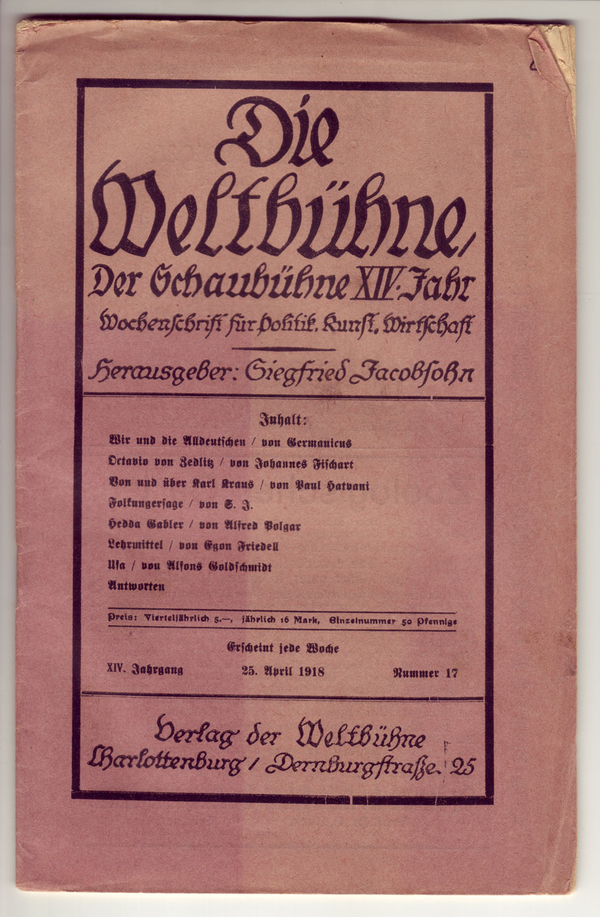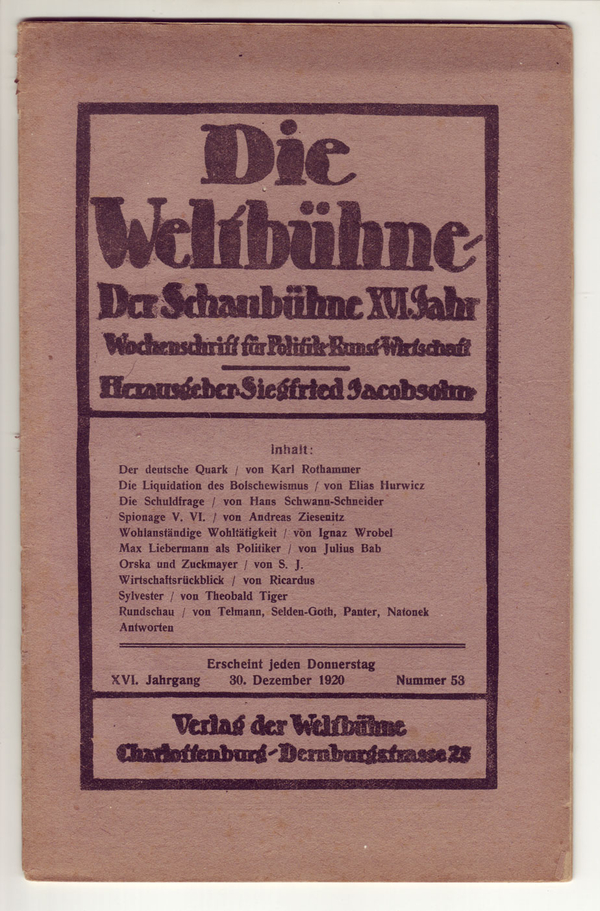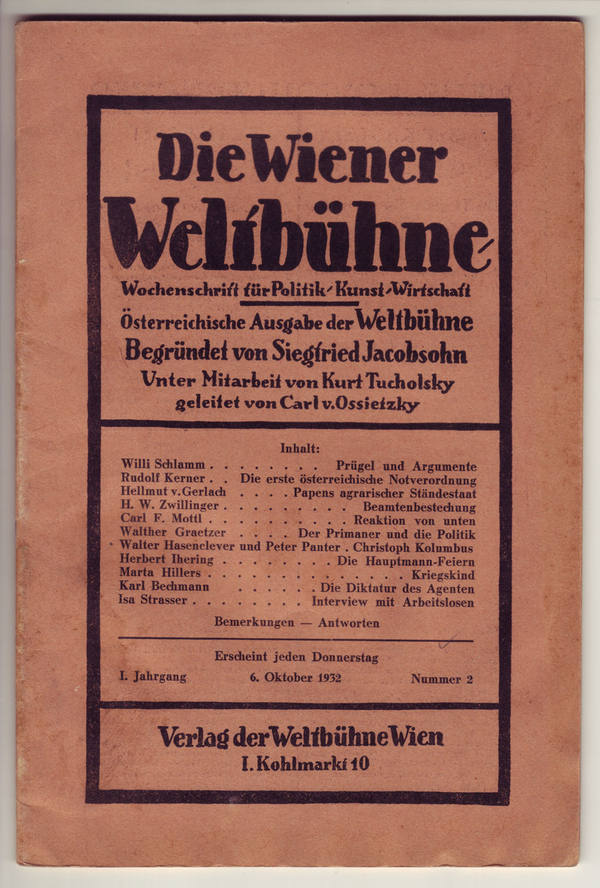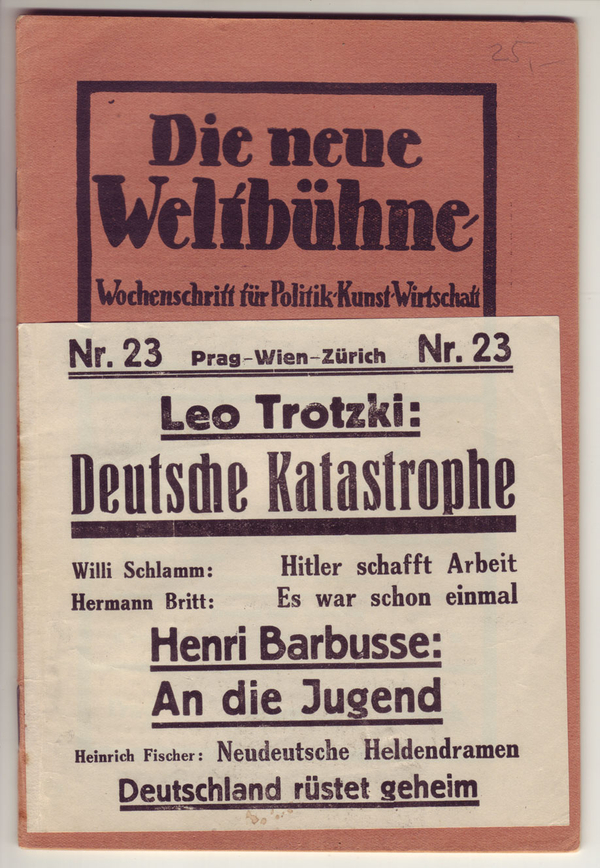Audio guide for reading
Audio guide for reading „Die Weltbühne“ was a weekly magazine for politics, economy and culture. Siegfried Jacobsohn first launched it as a theatre-magazine with the name “Die Schaubühne. The first red booklet was published in September 1905. In April 1918 “Die Schaubühne” was renamed “Die Weltbühne” as it started to include economic and political topics. In his essay “We Negatives” Tucholsky mapped the agenda out:
“We want to fight with hate out of love. […] Certainly we fight with hate. But we fight with love for the suppressed, who are not necessarily proletarian, and we love the human and the thought of mankind.”
Jacobsohn referred to “Die Weltbühne” as his “heart and soul”, still the magazine only had a circulation of 15.000 copies. Nonetheless it reached the public. The uncovering of the feme murders in the black “Reichswehr” was a journalistic success. Its reports about the secret rearmament of the “Reichswehr” and Tucholsky’s sentence “Soldiers are murderers” lead to the so called “Weltbühne”-lawsuits.
The radical-democratic spirit of the “Weltbühne was based on a modern ideal of freedom. Tucholsky put it thus:
There is an organism called human being. And its happiness is in question. Its freedom is the goal. Groups are secondary – the state is secondary. It doesn’t matter that the state may live, it matters that the human being may live.
After the “Reichstag” caught fire in March 1933 the “Weltbühne” was banned. The publisher Carl von Ossietzky was tortured to death by the Nazis in concentration camp. Editorial staff continued the magazine with the title “Die neue Weltbühne” from exile in Austria. They understood themselves as a panel for the people’s front against Hitler, until the magazine was banned again in 1939. After the Second World War the magazine appeared again under its old title “Die Weltbühne” in East Berlin. After legal disputes about title copyright the production of the magazine ended in 1993.
![[Translate to Englisch:] Kurt Tucholsky Literaturmuseum [Translate to Englisch:] Kurt Tucholsky Literaturmuseum](/fileadmin/_processed_/4/c/csm_logo-ktm_adccaface9.png)
